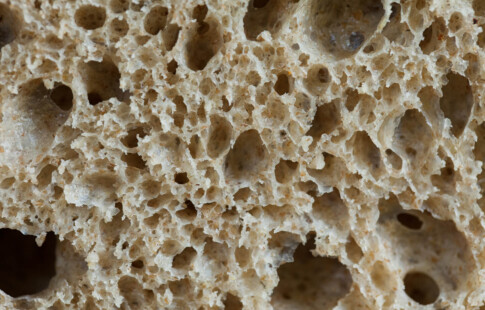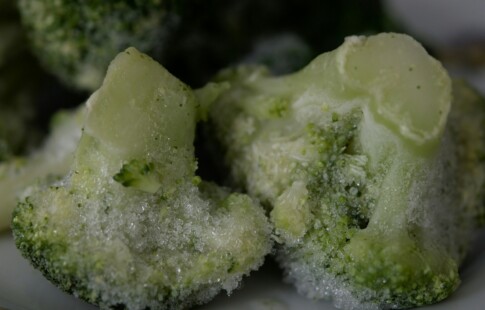
Analyzing Weight Loss Spices: Do They Produce Real Results?
We are reader-supported. When you buy through links on our site, we may earn affiliate commission.
There is a lot of pseudoscience floating around about the right and wrong ways to eat. The same suggestion from two sources could say a method produces fat and eliminates it simultaneously. Herbs and spices are getting the same treatment, as many are being dubbed weight loss spices.
These hacks are supposed to trim waistlines by simply eating more of them. What is the actual science behind these claims, and do any of them support intuitive eating and a healthy relationship with your diet?
The Capsaicin in Cayenne
Cayenne is one of the most popular weight loss spices. In fact, many spicy ingredients, including chili powders, are also subject to these claims. Cayenne has a compound in it called capsaicin, which makes it hot. There are some studies that show it can increase metabolism if consumed regularly, which could or couldn’t be associated with losing pounds.
However, it alone cannot lead to weight loss. There are not enough studies that are robust enough studies to make this connection undeniable among medical professionals. In fact, consuming too much cayenne could lead to some adverse health effects like irregular bowel movements. It could also irritate individuals with gastrointestinal ailments.
Additionally, the Federal Drug Administration does not oversee supplement dosages, including cayenne products, meaning these products could be far beyond what is considered a healthy administration.
The Insulin Management in Cinnamon
Cinnamon is another one commonly advertised for its diet-assistance potential. Why? It has a reputation that it stabilizes blood sugar, potentially helping those with diabetes. If you can regularly keep this in check, then it could prevent hunger spikes or even reduce appetite.
However, according to the Mayo Clinic, these studies are also sparse, and dosages to establish these effects are unknown or inconsistent. More research is needed, but it might not get ruled out entirely in the future as something that could support additional weight loss efforts. Similarly to cayenne, any supplements are not regulated. They could be safe, but always double-check with medical providers first.
The Cholesterol Benefits of Cumin
If you can lower your cholesterol, then you might have a shot at better weight loss goals. One famous study from 2014 boasted weight loss results when cumin was mixed with yogurt. However, this study was performed on a small study group with a specific demographic of people. It was not comprehensive or diverse enough to provide a definitive truth about cumin’s diet potential. This could be the basis of some interesting work moving forward, but there hasn’t been much development with it specifically.
This highlights a trend that is common among many weight loss spice claims — their reputation was founded because of small or localized studies that have not held momentum in recent years. It is important to fact-check information by seeing if the study group relates to you and your circumstances. You should also be wary of the date, as valid medical claims come from recency and breadth of scope.
The Appetite Impact of Fenugreek
Fenugreek is a type of legume, which is a food family known for its health benefits and assistance to weight loss in its own right. Many incorporate legumes as part of vegan, vegetarian, or flexitarian diets, which may also help with weight goals. Fenugreek, specifically, is rumored to have appetite-suppressing properties, increasing fullness cues and minimizing fat intake.
However, any metabolic or weight loss perks are likely from its nutritional value — not because it is a special weight loss ingredient. It is a great source of fiber, which is crucial for satiety. It can also support regular bowel movements and digestion, which could, in theory, impact weight loss if consuming appropriate amounts of fiber. Unfortunately, fenugreek alone is not enough.
The Thermogenesis of Ginger
Ginger has a long and storied history, especially in naturopathic medicine. Rumors would suggest it can do any of the following, though evidence is few and far between:
- Lower appetite
- Boost metabolism
- Cuts belly fat
- Reduce the rate your body absorbs fat
Ginger is also known for causing a bodily reaction called thermogenesis, which is when the body creates additional heat from a physiological response. You can make this happen by exercising or dieting, so thermogenesis is connected to weight loss. Recent studies examining the acute impacts of ginger tea consumption versus water proved a connection is verifiable, though it didn’t have a lasting impact on diet.
The Piperine of Black Pepper
Finally, you have one of the most common spices in the kitchen — black pepper. It contains piperine, which people associate with catalyzed weight loss. There are not many studies about the impacts of black pepper on humans or animals. In fact, the few studies that have been done have only been in test tubes, which are not indicative of how they would respond to human test subjects. These studies are also outdated and need revisiting.
However, there are other health benefits that are possible with regular consumption of black pepper. In the right conditions, it could:
- Lower cholesterol
- Control glucose
- Improve liver performance
- Slow blood clotting
The Final Word on Weight Loss Spices
Many of these weight loss hacks are enticing because they are so easy they seem too good to be true. Unfortunately, most claims around weight loss spices have been overinflated, underresearched, or misinterpreted.
If you want to see a greater impact on your weight, you should focus on these health regions first before seeking supplements:
- Quality sleep
- Balanced diet
- Regular exercise
- Adequate hydration
Additionally, any muscle-building and weight-loss objectives should be discussed with health professionals instead of relying exclusively on online advice. Consult a primary care physician, nutritionist, dietician, or personal trainer to learn more about your body and goals with evidence-based solutions.
Weight Loss Spices, Debunked
The good news is many of these simple additions to your diet do produce tons of health benefits that support a healthy gut, immune system, and more. These can all support other weight loss goals, such as a fitness regimen and maintaining a calorie deficit with appropriate macronutrient distribution.
Share on
Like what you read? Join other Environment.co readers!
Get the latest updates on our planet by subscribing to the Environment.co newsletter!
About the author

Steve Russell
Steve is the Managing Editor of Environment.co and regularly contributes articles related to wildlife, biodiversity, and recycling. His passions include wildlife photography and bird watching.





